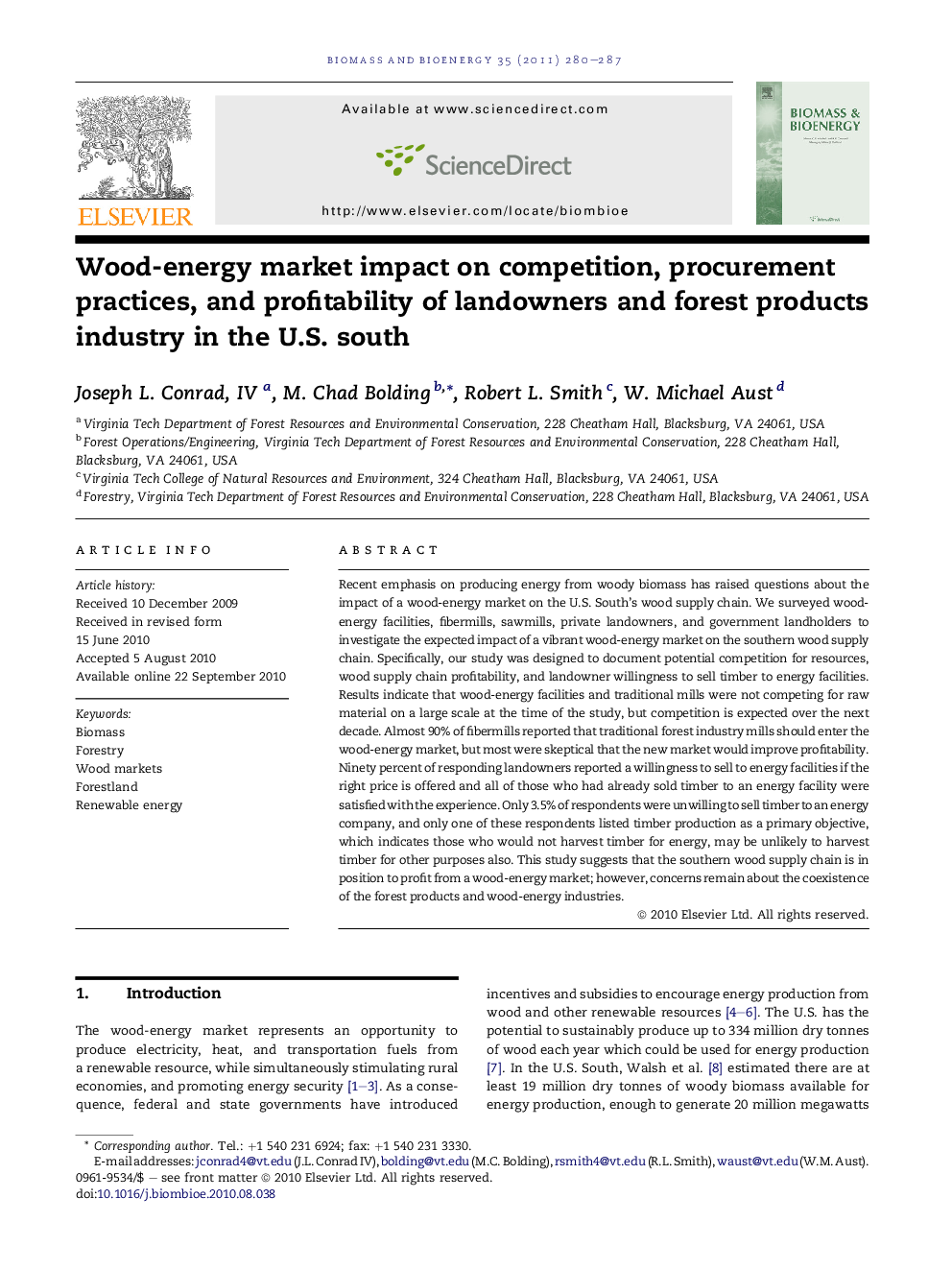| Article ID | Journal | Published Year | Pages | File Type |
|---|---|---|---|---|
| 678083 | Biomass and Bioenergy | 2011 | 8 Pages |
Recent emphasis on producing energy from woody biomass has raised questions about the impact of a wood-energy market on the U.S. South’s wood supply chain. We surveyed wood-energy facilities, fibermills, sawmills, private landowners, and government landholders to investigate the expected impact of a vibrant wood-energy market on the southern wood supply chain. Specifically, our study was designed to document potential competition for resources, wood supply chain profitability, and landowner willingness to sell timber to energy facilities. Results indicate that wood-energy facilities and traditional mills were not competing for raw material on a large scale at the time of the study, but competition is expected over the next decade. Almost 90% of fibermills reported that traditional forest industry mills should enter the wood-energy market, but most were skeptical that the new market would improve profitability. Ninety percent of responding landowners reported a willingness to sell to energy facilities if the right price is offered and all of those who had already sold timber to an energy facility were satisfied with the experience. Only 3.5% of respondents were unwilling to sell timber to an energy company, and only one of these respondents listed timber production as a primary objective, which indicates those who would not harvest timber for energy, may be unlikely to harvest timber for other purposes also. This study suggests that the southern wood supply chain is in position to profit from a wood-energy market; however, concerns remain about the coexistence of the forest products and wood-energy industries.
